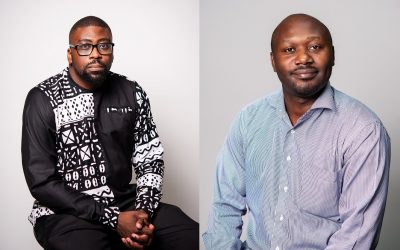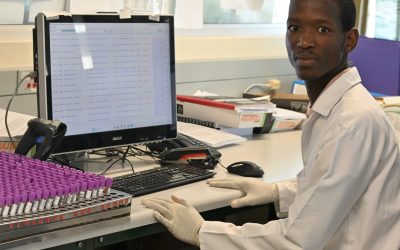Sefako Makgatho Health Sciences University (SMU) is at the forefront of a revolutionary shift in medical education, equipping future healthcare professionals with the skills needed to navigate an increasingly complex and evolving healthcare landscape. Through its Practice of Medicine (POME) curriculum, the university has embraced Inquiry-Based Learning and Teaching (IBLT)—a dynamic educational model that fosters critical thinking, clinical reasoning, and self-directed learning. This progressive approach sets SMU apart as a leader in medical pedagogy, ensuring that its graduates are not only competent but also innovative and ethically grounded professionals.
 Inquiry-based learning: Redefining medical training
Inquiry-based learning: Redefining medical training
SMU’s adoption of IBLT moves away from traditional passive learning models, instead empowering students to take an active role in their education. This method, rooted in the philosophies of John Dewey and Jerome Bruner, encourages problem-solving and analytical thinking from the very first year. Gerda Botha, a medical education expert, emphasises that the success of IBLT hinges on facilitators guiding students rather than merely transferring knowledge, thereby fostering a culture of independent inquiry.
This model progressively shifts students from structured, guided learning to open, self-directed research, ensuring they develop the ability to critically evaluate information and adapt to real-world clinical settings. By the time students reach their third year, they are formulating well-structured research proposals, securing ethics clearance, and producing work suitable for publication—a testament to the curriculum’s emphasis on research excellence. Many SMU students have already had their research published in renowned journals such as the South African Family Practice and the Undergraduate Research in Health Journal.
At SMU, Evidence-Based Medicine (EBM) is seamlessly woven into the curriculum, equipping students with the skills needed to critique and apply medical research in clinical settings. Dr Kamelia Nashed and Dr Christian Saidiya, who oversee the integration of research methodologies, highlight how students progress from learning basic epidemiology and study design in their first year to applying EBM principles to real-world patient scenarios by their final years.
 According to Nashed, by the second year, students gain a sophisticated understanding of research methodologies, hierarchy of evidence, and proposal development. By the time they transition into their third year, they are expected to independently critically appraise research articles and apply their findings to clinical decision-making—a skillset that will define them as competent and research-savvy medical professionals.
According to Nashed, by the second year, students gain a sophisticated understanding of research methodologies, hierarchy of evidence, and proposal development. By the time they transition into their third year, they are expected to independently critically appraise research articles and apply their findings to clinical decision-making—a skillset that will define them as competent and research-savvy medical professionals.
SMU understands that competent medical practice is as much about ethical integrity as it is about clinical skill. Led by Professor Adegoke Adefolalu and Dr Nokufa Mnguni, the university’s ethics curriculum runs as a “golden thread” throughout the entire medical programme. From the first year, students engage with theoretical principles of medical ethics, later applying them in real-world clinical settings such as HIV patient care and service-learning initiatives.
Mnguni highlights how early exposure to real patients and multidisciplinary healthcare teams enhances students’ ethical reasoning, communication skills, and empathy. By embedding ethics into every stage of training, SMU ensures that its graduates uphold the highest moral standards in their medical practice.
Interdisciplinary collaboration: Training holistic healthcare professionals
Recognising the need for collaborative healthcare delivery, SMU places a strong emphasis on Interprofessional Education and Collaborative Practice (IPECP). Dr Nomsa Mogosetsi and Dr Suzan Nnanile Nyalunga highlight how the first-year medical module introduces students to various medical disciplines, fostering an appreciation for the interconnected nature of healthcare professions.
Through interactive workshops, role-plays, and problem-solving exercises, students engage in discussions around diversity, inclusivity, and healthcare disparities. This immersive learning approach encourages future doctors to understand the social determinants of health and develop cultural competence—an essential skill in South Africa’s diverse healthcare landscape.
SMU ensures that clinical reasoning is at the core of medical training. Dr Angelina Ulzen, an expert in this domain, describes clinical reasoning as the logical thread that ties together all teaching modules, guiding students towards sound diagnosis and management decisions.
By the third year, students are actively contributing to clinical discussions and diagnostic problem-solving, applying their knowledge of anatomy, physiology, and pathology in real-world healthcare settings. This approach bridges the gap between theory and practice, ensuring that SMU graduates emerge as competent and confident healthcare practitioners.
SMU recognises the importance of One Health, a multidisciplinary approach that connects human, animal, and environmental health. Introduced in the second year and expanded in the third year, this concept encourages students to consider the global impact of climate change, zoonotic diseases, and food security.
Adefolalu notes that by the end of their third year, students present their understanding of One Health concepts in peer-assisted learning sessions, where they propose solutions to pressing public health challenges. These collaborative projects refine students’ problem-solving skills, equipping them with the competence to address future health crises.
SMU’s vision for the future of medical education
The integration of Inquiry-Based Learning, ethical training, and interdisciplinary collaboration into the POME curriculum at SMU is reshaping the landscape of medical education. By fostering critical thinking, research excellence, and hands-on clinical reasoning, the university is ensuring that its graduates are not only skilled practitioners but also leaders in the field of healthcare innovation.
While the effectiveness of IBLT has been widely studied in high-income countries, there is limited research on its impact in Low- and Middle-Income Countries (LMICs), particularly in Sub-Saharan Africa. Given its fully mapped undergraduate health professions curriculum, SMU is uniquely positioned to lead global research efforts on the application of IBLT in LMICs.
By embedding research, ethics, and interdisciplinary training at the core of its medical programme, SMU is not only preparing students to meet the healthcare challenges of today but is also equipping them to shape the future of medicine in Africa and beyond.
By Tumelo Moila



